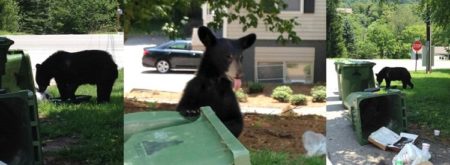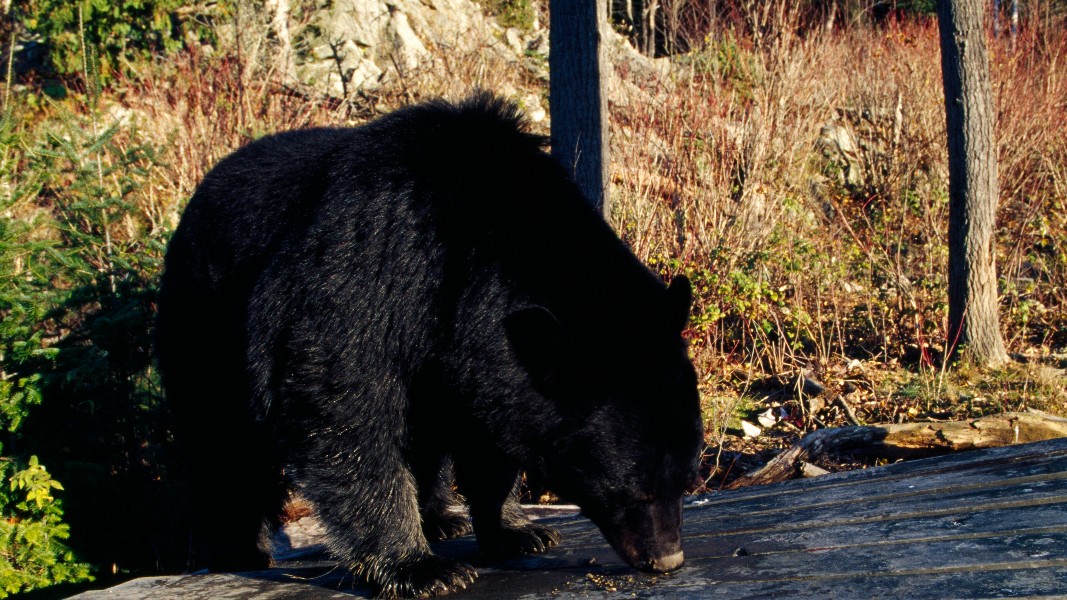
Prevent Problems
Notice: Do Not Feed Bears
Most injuries associated with bear-human encounters result from people feeding bears or from bears feeding on human food sources.
Facts and Tips
Help us Make Asheville a Bear Smart Community
- Fact: Bears in your neighborhood are not a cause for concern. Most bear problems are temporary, usually occurring in the spring and summer.
- Fact: Bears will naturally investigate food odors. They are attracted to garbage, bird seed and suet, pet foods, compost piles and grease on barbecue grills.
- Fact: No one traps and relocates problem bears. Best practices for bear management aim to encourage humans to modify habits to prevent problems and remove sources of attraction before problems occur.
- Tip: Secure bags of trash inside cans and store these cans in a garage, basement, or other secure area.
- Tip: Avoid putting trash cans out the night before pick-up days. On trash pick-up days, place trash outside, as late as possible. Keep all garbage sites clean.
- Tip: If a bear is in the area, remove bird feeders and hummingbird feeders. Even if a bird feeder is advertised as “bear proof”, it is not safe to use near bears.
- Tip: Do not leave pet foods out overnight. If you must feed pets outdoors, make sure all food is consumed and empty bowls are removed.
- Tip: Clean all food and grease from barbecue grills after each use. Bears are attracted to food odors and may investigate.
Current Bear Problem
If You Already Have a Problem with a Bear
- Try repellents, but don’t rely on them. There are no repellents that are registered for use on bears. Sprinkling ammonia or other strong disinfectants on garbage can mask the odor of food.
- Frighten the bear. Shouting, clapping, blasting a car horn or motion-sensitive lights may scare off a bear temporarily.
- Do not approach the bear. Crowds of people can unnerve a bear, causing it to act unpredictably.
- Install electric fencing. It may deter bears from approaching beehives, dumpsters, gardens, compost piles, or other potential food sources.
- Consider reserving a bear resistant trash cart.
Additional Information
Additional information and resources can be accessed from
North Carolina Wildlife Resources Commission (WRC)
or
The WNC Nature Center local wildlife species experts at 828-298-5600
Updated 11/10/2020
